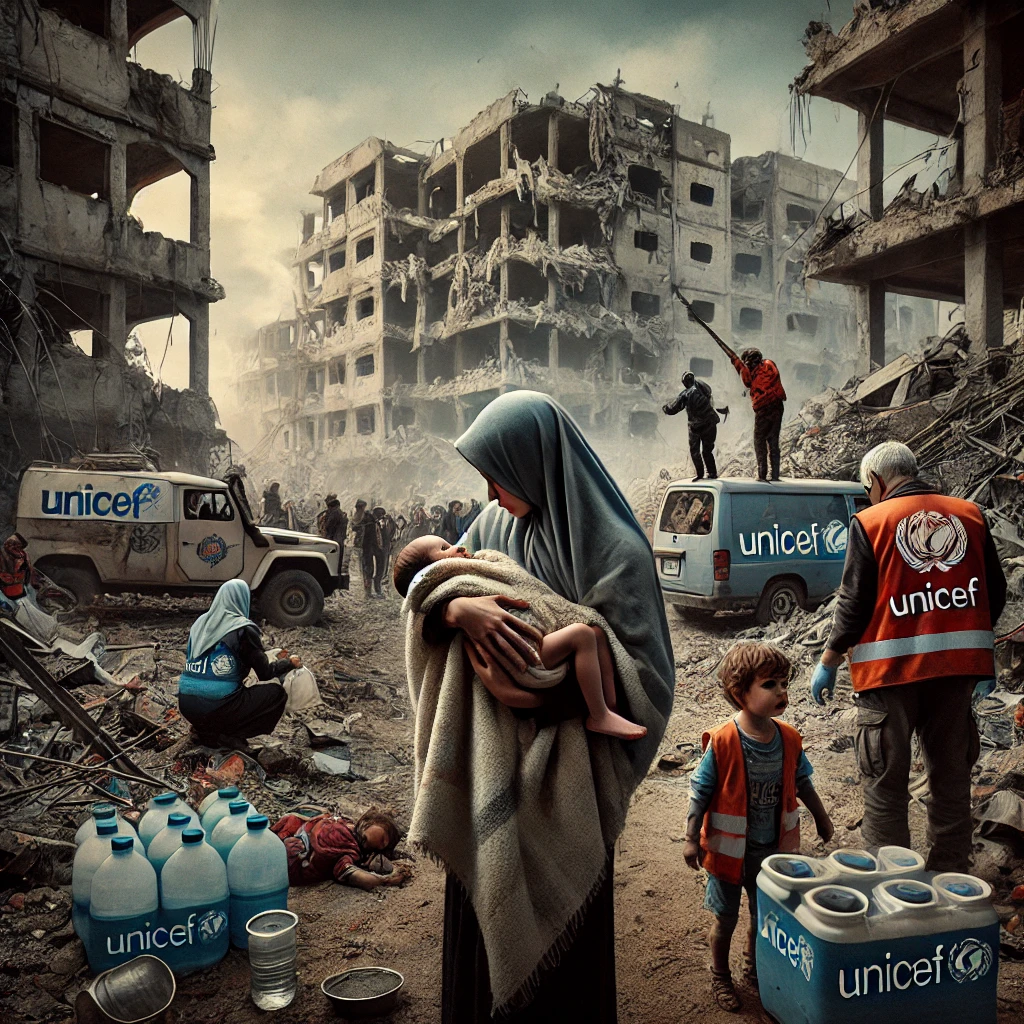UN Expert Condemns Israeli Strike on Gaza’s Last Hospital Amid Health Crisis
The attack, which occurred on 13 April 2025, marks yet another devastating blow to a healthcare system that international observers say is on the brink of total collapse.

The UN Special Rapporteur on the right to health, Dr. Tlaleng Mofokeng, has issued a forceful condemnation following an Israeli airstrike that destroyed the emergency department of Al-Ahli Arab Hospital—the last remaining operational hospital in northern Gaza. The attack, which occurred on 13 April 2025, marks yet another devastating blow to a healthcare system that international observers say is on the brink of total collapse.
Dr. Mofokeng expressed profound outrage and despair at the continued targeting of health infrastructure in Gaza. “I am horrified to learn that the war on hospitals, health care providers, and civilians continues,” she said. “The many months of coruscant violence make the provision of health services even more impossible in a system already brought to its knees.”
The attack reportedly led to the death of at least one child who was denied urgent medical attention due to the destruction of emergency facilities. Human rights advocates and health professionals have called the incident part of a broader pattern of indiscriminate violence that has rendered Gaza’s medical system non-functional.
“With this latest attack, the options for health care—especially emergency care—are reduced to zero,” Mofokeng said. “The health care system in Gaza has been decimated, and Israel continues to operate with impunity.”
Health System in Ruins
According to the World Health Organization (WHO), at least 670 separate attacks on health care have been documented in the Occupied Palestinian Territory from 7 October 2023 to 14 March 2025. These include strikes on 122 health facilities, with 33 hospitals either partially or completely damaged. The attacks have forced hundreds of thousands to live without access to trauma care, surgical intervention, or treatment for chronic conditions.
Al-Ahli Arab Hospital, a historic Christian-run facility, had continued to provide basic and emergency care in Gaza's north even as other hospitals were forced to shut down. Health workers had been operating in extremely difficult conditions, often without electricity, clean water, or supplies.
In her statement, Dr. Mofokeng emphasized the extreme vulnerability of health workers in Gaza. “These frontline responders—doctors, nurses, ambulance drivers—are exposed daily to harassment, intimidation, and death as they try to save lives. The targeting of these heroes and their workplaces violates the most fundamental tenets of international humanitarian law.”
International Law and Accountability
Under the Geneva Conventions and other binding instruments of international law, medical personnel, hospitals, and ambulances are afforded special protections during armed conflict. Attacks on these entities are considered grave breaches and may constitute war crimes under international criminal law.
Despite this, the pattern of destruction has continued with little accountability, prompting renewed calls for urgent international intervention. Dr. Mofokeng called on governments, multilateral organizations, and civil society leaders to act decisively to halt the violence.
“I appeal to your humanity and any remaining capacity you may have left for action to preserve the population of Gaza,” she said. “The people of Gaza deserve dignity, protection, and a health system that functions. They have endured unimaginable suffering for over 18 months.”
Humanitarian Catastrophe
Since the escalation of hostilities in October 2023, more than 35,000 Palestinians have been killed, according to Gaza’s health authorities, with thousands more injured. Infrastructure, including schools, water systems, and electricity grids, has been severely damaged. The blockade on Gaza has severely limited the entry of medical supplies, food, and fuel, compounding the humanitarian catastrophe.
WHO and other UN agencies have repeatedly called for unimpeded access for humanitarian aid, including medical convoys, mobile clinics, and field hospitals. However, the repeated targeting of convoys and treatment centers has made these efforts perilous.
“Restoring health services in Gaza is not just about rebuilding hospitals—it’s about rebuilding hope, restoring humanity, and giving a future to the people who have lost everything,” Mofokeng added.
The UN expert urged world leaders to act beyond statements and diplomatic gestures. “Now is the time for bold, moral leadership. Lives are being lost by the hour.”
As the war grinds on, the people of Gaza continue to suffer a dual assault—one from the violence that rains down on them and another from the global silence that follows.
- READ MORE ON:
- Gaza
- Dr. Tlaleng Mofokeng
- Al-Ahli Arab Hospital










